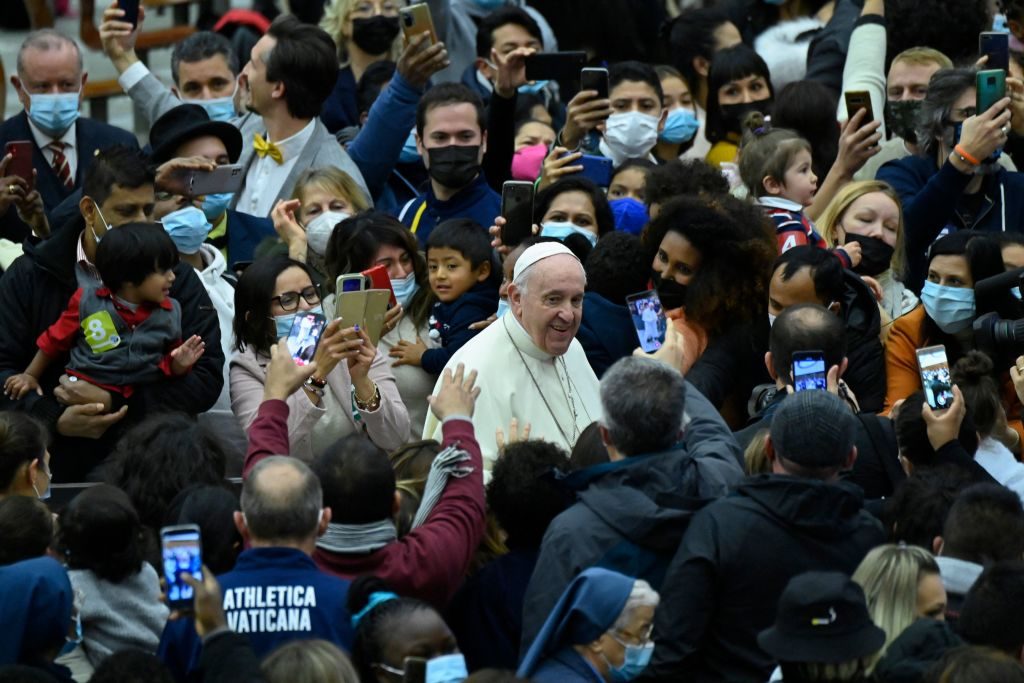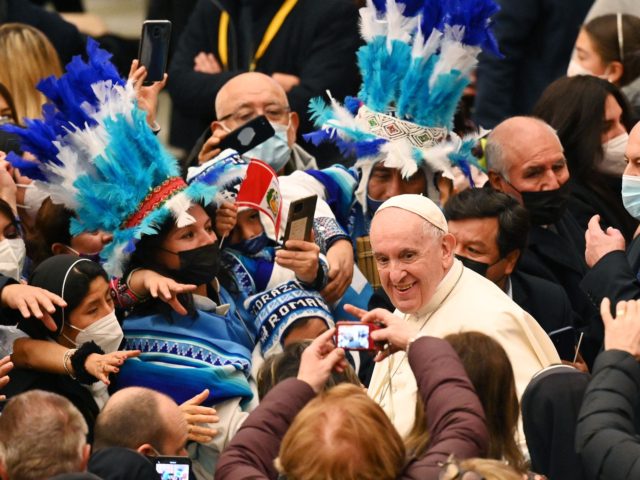ROME — Pope Francis paints a bleak vision of a world ravaged by disease, climate change, and war in his message for the World Day of Peace released Tuesday.
Today the path of peace “remains sadly distant from the real lives of many men and women and thus from our human family, which is now entirely interconnected,” the pope writes in his message for the 55th World Day of Peace, to be celebrated on January 1.
“Despite numerous efforts aimed at constructive dialogue between nations, the deafening noise of war and conflict is intensifying,” the pontiff asserts, and military expenditures “have increased beyond the levels at the end of the Cold War and seem certain to grow exorbitantly.”
It is high time that governments “develop economic policies aimed at inverting the proportion of public funds spent on education and on weaponry,” he proposes. “The pursuit of a genuine process of international disarmament can only prove beneficial for the development of peoples and nations, freeing up financial resources better used for health care, schools, infrastructure, care of the land and so forth.”
Along with war and armed conflicts, Francis underscores a series of other crises assailing humanity.
Pope Francis called Saturday for universal access to coronavirus vaccines and “the temporary suspension of intellectual property rights.” https://t.co/xIv2FI2THu
— Breitbart News (@BreitbartNews) May 9, 2021
“While diseases of pandemic proportions are spreading, the effects of climate change and environmental degradation are worsening, the tragedy of hunger and thirst is increasing, and an economic model based on individualism rather than on solidary sharing continues to prevail,” the pope laments.
“As in the days of the prophets of old, so in our own day the cry of the poor and the cry of the earth constantly make themselves heard, pleading for justice and peace,” he adds.
“We need only think of care for our common home,” he declares. “The environment, in fact, is on loan to each generation, which must then hand it on to the next.”
As he has done on many other occasions, Francis encourages his followers to look to young environmental activists for leadership.
“We ought to esteem and encourage all those young people who work for a more just world, one that is careful to safeguard the creation entrusted to our stewardship,” he states.

Attendees greet Pope Francis as he arrives for an audience to children cared for by the Santa Marta Dispensary, on December 19, 2021 in The Vatican. (ALBERTO PIZZOLI/AFP via Getty)
“They go about this with restlessness, enthusiasm and most of all a sense of responsibility before the urgent change of direction required by the challenges emerging from the present ethical and socio-environmental crisis,” he adds.
In his message, the pope also stresses the immense negative impact of the coronavirus pandemic, which goes far beyond the issue of health.
“The Covid-19 pandemic has negatively affected the labour market, which was already facing multiple challenges,” he states. “Millions of economic and productive activities have failed; short-term workers are increasingly vulnerable; many of those who provide essential services have an even lower public and political profile; and in many cases, distance teaching has led to a deficit in learning and delays in completing programmes of study.”
“Furthermore, young people entering the job market and recently unemployed adults presently face bleak prospects,” he adds.
Woke Pope Francis goes all in! Calls for 'Green economics,' 'Green spirituality,' and 'Green education'! https://t.co/CHwAXIXBFy
— Breitbart News (@BreitbartNews) May 26, 2021
While many react selfishly to the pandemic by retiring into themselves or protesting violently, the true path forward is one of “dialogue,” Francis proposes.
“In a world still gripped by the pandemic that has created untold problems, some people attempt to flee from reality, taking refuge in their own little world; others react to it with destructive violence,” he states. “Yet between selfish indifference and violent protest there is always another possible option: that of dialogue.”
Amidst the global crises facing humanity, the pope suggests three paths to resolution, namely intergenerational dialogue, education, and labor.
“These are three indispensable elements for making possible the creation of a social covenant, without which every project of peace turns out to be insubstantial,” he declares.

COMMENTS
Please let us know if you're having issues with commenting.